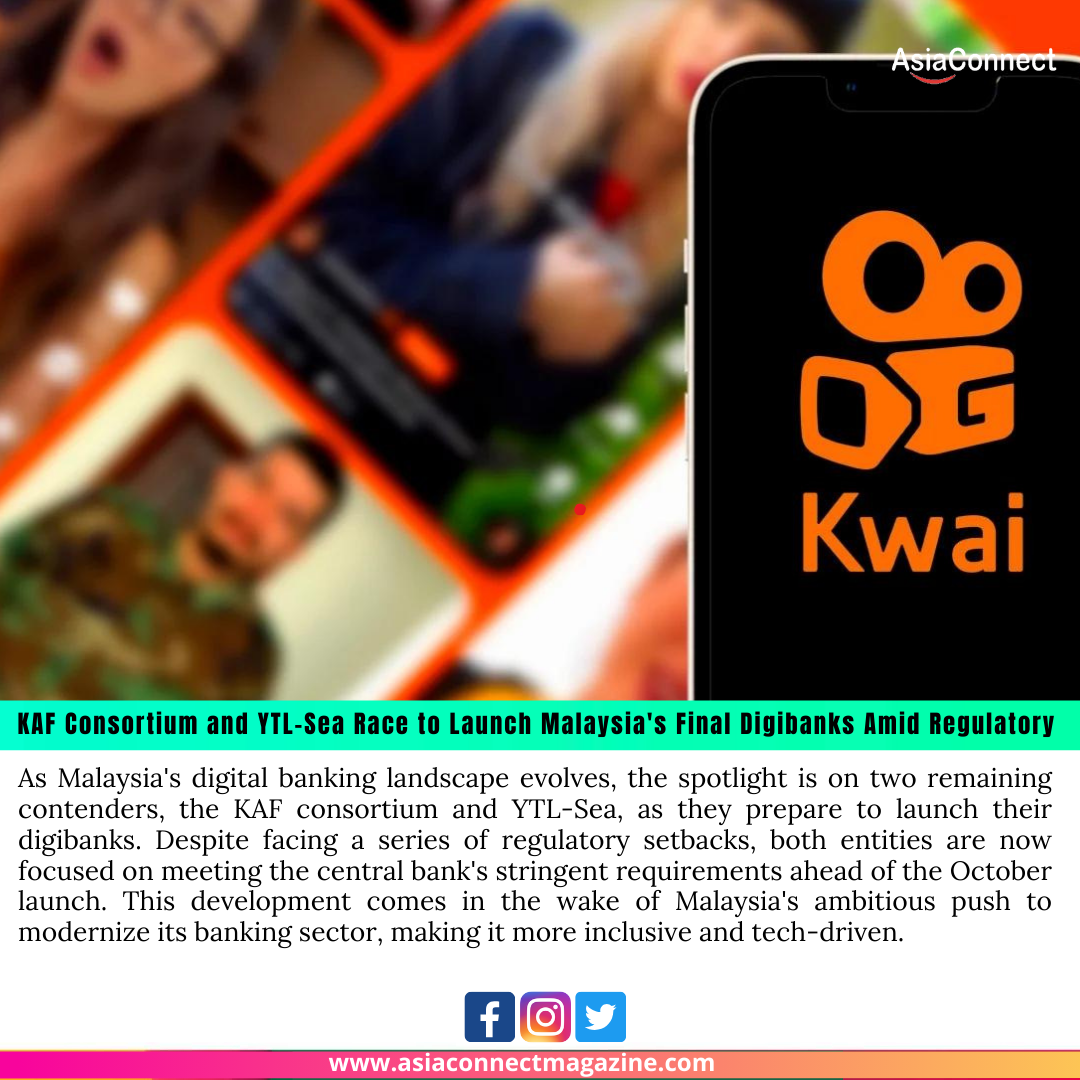As Malaysia’s digital banking landscape evolves, the spotlight is on two remaining contenders, the KAF consortium and YTL-Sea, as they prepare to launch their digibanks. Despite facing a series of regulatory setbacks, both entities are now focused on meeting the central bank’s stringent requirements ahead of the October launch. This development comes in the wake of Malaysia’s ambitious push to modernize its banking sector, making it more inclusive and tech-driven.
The journey to becoming a digital bank in Malaysia has not been straightforward. The country’s central bank, Bank Negara Malaysia (BNM), introduced a comprehensive framework for digital banking to foster competition and innovation in the financial sector. This framework is designed to ensure that new entrants meet high standards of operational readiness, financial stability, and consumer protection before being granted licenses.
In the initial phases, Malaysia saw a flurry of interest from various consortia and tech firms eager to carve out a niche in the burgeoning digital banking space. However, the road has been fraught with challenges. Several applicants encountered regulatory hurdles, leading to delays and re-evaluations of their business models and operational strategies.
Among the most notable entities still in the race are the KAF consortium and YTL-Sea. The KAF consortium, led by the KAF Group, a prominent player in Malaysia’s financial services sector, and YTL-Sea, a collaboration between YTL Communications and Sea Group, a major tech conglomerate, have both faced their share of obstacles. These challenges include stringent regulatory requirements, technical integration issues, and the need to demonstrate robust risk management practices.
Despite these setbacks, both the KAF consortium and YTL-Sea remain committed to meeting the requirements set forth by BNM. The central bank’s regulatory framework necessitates that digital banks not only comply with financial stability norms but also provide innovative, secure, and customer-centric banking solutions. This includes having a strong digital infrastructure, a comprehensive risk management system, and an operational model that ensures transparency and accountability.
For the KAF consortium, the focus has been on integrating advanced technologies and developing a platform that delivers seamless and efficient banking services. The group is leveraging its existing financial expertise to build a digital bank that caters to a wide range of customer needs, from everyday transactions to more complex financial services.
On the other hand, YTL-Sea, with its background in telecommunications and e-commerce, is aiming to offer a digital banking experience that seamlessly integrates with its other digital platforms. YTL-Sea’s approach emphasizes leveraging technology to enhance user experience and provide financial services that are both accessible and user-friendly.
As the October launch date approaches, both entities are working diligently to address the remaining regulatory concerns and finalize their operational setups. The central bank’s requirements are designed to ensure that only the most prepared and capable digital banks enter the market, safeguarding the interests of consumers and maintaining the integrity of the financial system.
In conclusion, the impending launch of the KAF consortium and YTL-Sea’s digibanks marks a significant milestone in Malaysia’s digital banking journey. Their success will not only represent a triumph over regulatory challenges but also signal the country’s readiness to embrace a new era of banking that is more inclusive, innovative, and technologically advanced. As they navigate the final stages of regulatory approval, the industry and consumers alike are watching closely, eager to see how these new entrants will shape the future of banking in Malaysia.





